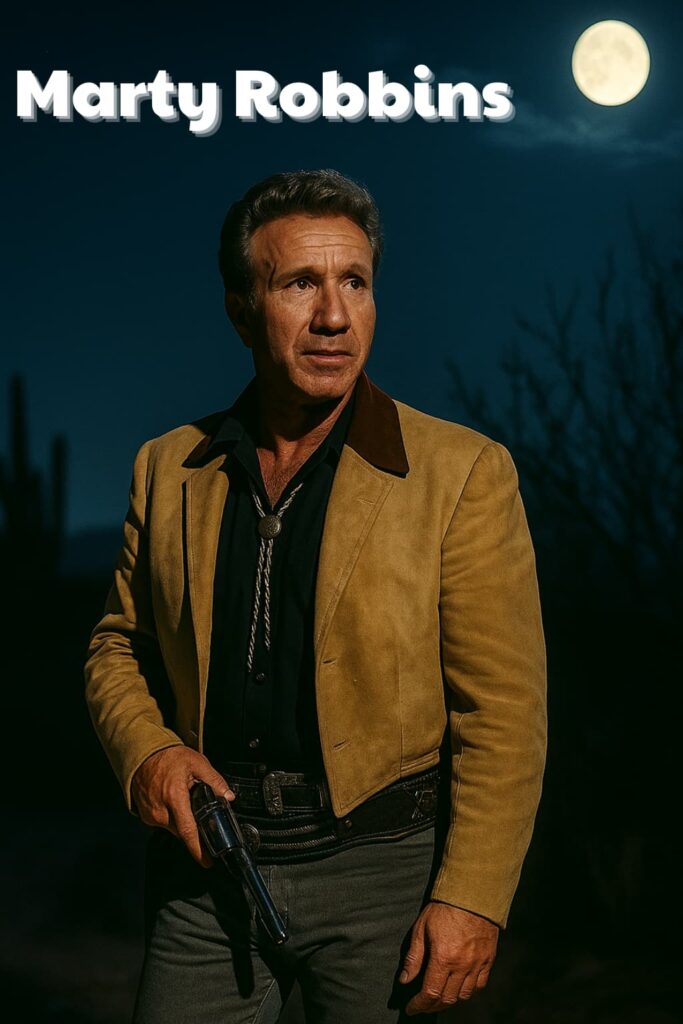
“Meet Me Tonight in Laredo” is a classic tale of a tragic, star-crossed love affair in the Old West.
In the realm of classic country and western music, there are songs that simply tell a story, and then there are songs that become a part of the tapestry of our collective memory, weaving together tales of love, loss, and the dusty, unforgiving landscapes of the American frontier. Marty Robbins’s “Meet Me Tonight in Laredo” from his 1966 album The Drifter is undoubtedly one of the latter. It’s a song that, much like the tumbleweeds rolling across a vast, empty plain, carried a certain weight and melancholy, echoing with the sounds of a time long past.
Though it didn’t achieve the same commercial chart-topping success as some of Robbins’s other iconic hits, it found a deep and lasting place in the hearts of listeners who appreciated its raw, emotional honesty and its powerful narrative. It was a time when radio waves were a lifeline to a shared cultural experience, and a song like this would have been a quiet, contemplative moment in a world that was rapidly changing.
The brilliance of Marty Robbins lay not just in his smooth, effortless baritone, but in his profound ability to inhabit the characters he sang about. With “Meet Me Tonight in Laredo,” he wasn’t just a singer; he was the desperate, lovelorn outlaw, a man torn between his dangerous life and the promise of a future with the woman he loved. This is a story that feels as old as the hills themselves, a classic star-crossed lovers narrative set against the backdrop of the wild west. The song’s plot is deceptively simple: a man, a drifter by trade, is planning one last stagecoach robbery, a final score that he believes will be his ticket to a new life with his beloved, Juana. The tension is palpable from the very first notes, and as the story unfolds, a sense of foreboding hangs in the air like a thick, heavy dust cloud.
But what truly elevates “Meet Me Tonight in Laredo” is its deeper, more poignant meaning. It’s a ballad not just about crime and punishment, but about the foolish hope that we all, at some point, cling to. It’s a song about believing that one more dangerous gamble, one more roll of the dice, will be the thing that finally sets us free. The narrator’s unwavering belief that he can pull off this one last heist and ride off into the sunset with Juana is a powerful, and ultimately tragic, testament to the human spirit’s capacity for hope, even in the face of insurmountable odds. The song’s heartbreaking conclusion—the betrayal by a trusted friend and the final, fatal shootout—is a gut punch, a brutal reminder that life doesn’t always grant us a fairy tale ending.
The final image of the narrator, dying and bleeding, with the name of his love on his lips, is a moment that sticks with you long after the final chord fades. It’s a memory, a feeling, a lump in the throat that transports you back to a simpler time, when stories were told with guitars and voices, and emotions were as vast and open as the landscapes they described. It’s a masterclass in storytelling, and a timeless reminder of the power of a great song to capture the very essence of the human condition.